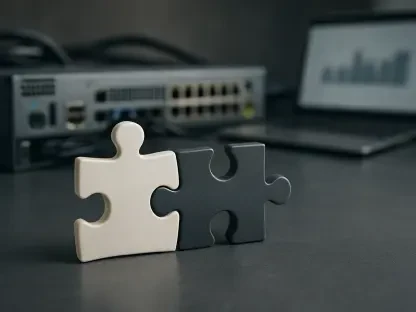When hearing of a high-ranking female executive, one might assume she navigates her role with ease. Yet, research tells another story—up to 70% of women in leadership positions experience self-doubt and imposter syndrome at some point in their careers. This staggering statistic serves as a powerful reminder of the internal battles faced by numerous successful women. Despite achieving significant milestones, many women quietly struggle with feelings of inadequacy, often compounded by societal pressures and expectations.
Unveiling the Challenge: Self-Doubt in the Modern Leadership Landscape
Understanding and addressing self-doubt and imposter syndrome among women leaders is crucial, given the evolving requirements of modern leadership. As companies strive to diversify their leadership teams, the power dynamics within workplaces are shifting. This calls for women to re-evaluate their self-perceptions and confront the barriers imposter syndrome creates. Moreover, fostering diversity is not just a trend; it’s a lens through which many organizations now seek to operate in a global environment. Emotional well-being and professional growth are at stake, making the struggle against these psychological hurdles more than a personal mission; it’s a vital business need.
Strategies to Challenge and Overcome Deep-Rooted Beliefs
Examining the mental framework of women in leadership reveals persistent negative self-talk and societal narratives impacting confidence. Former Nike Vice President Lucy Rouse stresses the importance of reframing these narratives. By challenging and questioning such thoughts, women can dismantle internalized limitations. It involves recognizing falsehoods and rebuilding self-perception on a foundation of strength rather than fear.
Women also face the challenge of navigating conflicting societal expectations. Selina Chang brings attention to the dichotomy of being assertive yet collaborative, a burden that often requires setting more realistic goals. Embracing these contradictions with a self-compassionate approach helps women navigate their leadership journey more freely. Chang argues for acknowledging these pressures, adapting strategies to meet them head-on, and adjusting expectations to a more attainable scope.
Culture plays a significant role in shaping self-perception for women leaders. Cultural norms often dictate humility, as seen in Asian cultures, compelling leaders to focus inwardly on weaknesses rather than outwardly on strengths. However, as Lisa Smith articulates, knowledge of one’s intrinsic value and breaking free from cultural confines leads to empowerment. For many, cultural expectations pose unique challenges but also inspire distinct methods of leadership.
Insights from the Brilliance Summit: Voices of Experience and Resilience
Insights from the Brilliance Summit provide real-world perspectives on overcoming internal obstacles. Rouse champions the pivot from doubt to empowerment by questioning retrospective narratives, owning personal ambitions, and broadening self-awareness. Chang adds weight with practical advice on dealing with contradictory expectations, advocating for authentic goal-setting within one’s reality. Offering a nuanced cultural perspective, Smith underscores resilience, highlighting that personal and cultural challenges can build unique leadership facets.
Panel chair Brenda Emmanus echoes a sentiment shared by these leaders, heralding self-doubt as a catalyst for growth. Embracing imposter syndrome as an opportunity rather than an impediment unlocks untapped potential, prompting women to remain steadfast in asserting their leadership abilities. This collective wisdom affirms that women leaders possess tremendous capability despite internal and external challenges.
Practical Tools to Banish Doubt and Build Leadership Confidence
Addressing self-doubt demands actionable approaches. Leaders can cultivate a growth mindset by perceiving failures as educational moments. This shift in perspective encourages resilience and optimism. A commitment to self-reflective practices will further reinforce the understanding and challenge of self-limiting beliefs. Identifying behaviors prone to self-sabotage and reversing them is essential in this journey.
Building networks and seeking out mentors can also dramatically influence confidence and accountability. Engaging with peers allows for shared wisdom and support, creating a buoyant environment conducive to professional development. Moreover, self-promotion and recognition of personal achievements counteract cultural predispositions toward humility, enabling women to claim their rightful space in leadership.
Women leaders possess untapped strength, with the capacity to conquer imposter syndrome and self-doubt. By actively engaging in these practices, women can assert their leadership, ensuring their contributions and voices resonate within their organizations. As they continue on this path, they redefine leadership not just for themselves but for future generations, inspiring greater confidence and resilience in all aspiring leaders.









